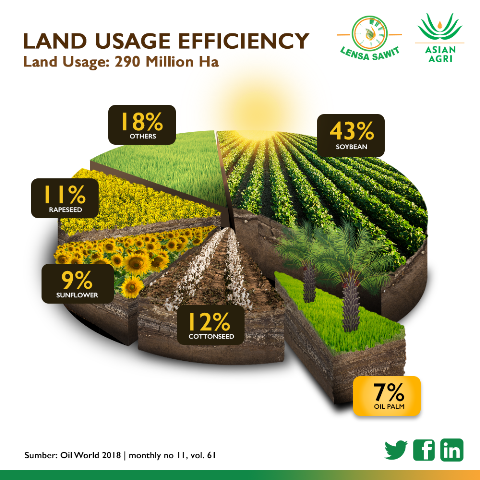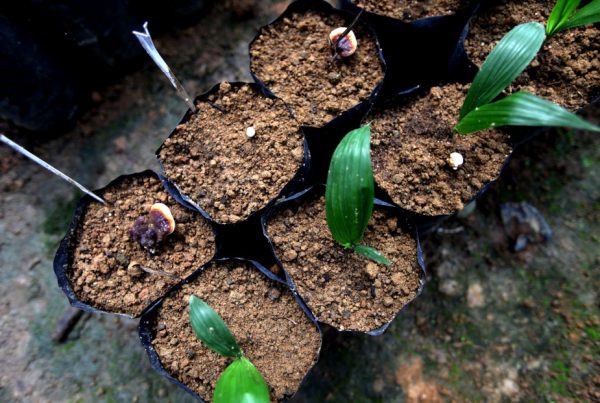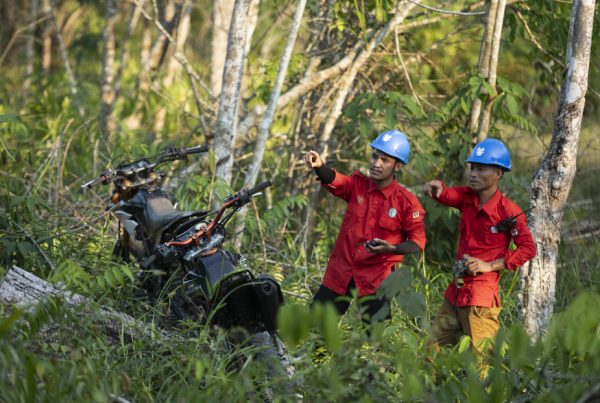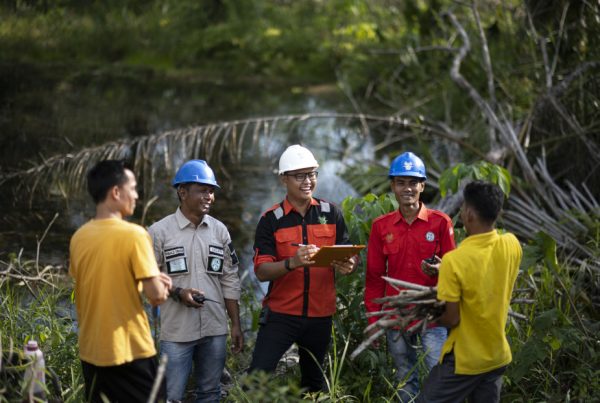Palm oil has been getting a bad press recently, with the EU threatening a partial boycott.
Why, critics ask, can’t the rest of the world follow suit?
It may sound like a simple solution but, as the International Union for the Conservation of Nature pointed out in this report, that would likely make the problem worse.
That’s because the world needs vegetable oil, and demand is only increasing as the population grows. Eliminating one type of oil from supply chains would simply shift demand to other types, with potentially even worse consequences for the environment.
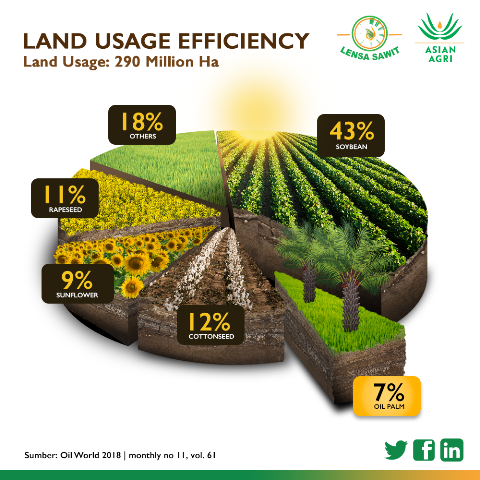
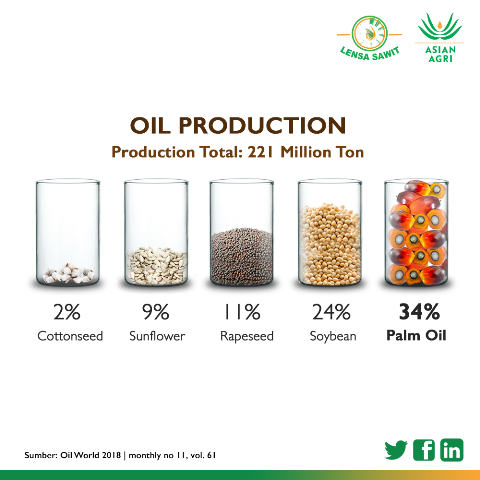
“Oil palms are the most efficient type of vegetable oil crop,” said Bernard Riedo, Director of Sustainability and Stakeholder Relations at Asian Agri. “Rival crops like soybean, rapeseed and sunflower need as much as six times the land to produce the same volume of oil, so if you want to replace palm oil you’re going to have massive deforestation because you need to plant other crops.”
The solution, he argues, is to make the palm oil industry more sustainable.
Certification bodies like the Roundtable on Sustainable Palm Oil (RSPO), which Asian Agri joined in 2006, provide a robust framework for this, banning deforestation, protecting peatlands and setting clear rules on human rights. In fact in November 2018 more than 4,000 members from industry, government, academia and NGOs voted overwhelming to adopt even stricter standards, in a move welcomed by WWF as “a significant step forward”.
The challenge, Bernard said, is that RSPO is a purely voluntary certification. “Part of the problem is that sustainable practices are uneven. You have some companies which take sustainability very seriously, and some that don’t, so maybe this is the point you need some government support,” Bernard said.
“Indonesia has already done this with ISPO certification, which is now mandatory, and that might be what we need to raise standards across the board.”
Talking About the Positive
Part of the reason for palm oil’s image problem is that suppliers have been reluctant to admit to its use, using generic wording in ingredients instead, such as ‘vegetable oil’. That means that although palm oil is found in around half of all packaged products in a typical supermarket, many consumers don’t realize they are using it, and so the conversation has been dominated by its detractors.
Although many brands are now beginning to include sustainable palm oil logos on their packaging, more needs to be done to educate people on the positives. And there are real positives, says Riedo. Millions of people in Southeast Asia have been lifted out of poverty through the palm oil industry. Many of the people who entered this industry in the ‘80s and ‘90s had only basic literacy skills, and some of them moved to production areas with literally just the clothes on their back to start a new life. Today their children are going to school, going to university, enjoying a completely different life thanks to this industry.
The solution is not to tell them to go back to living in poverty; it’s for big companies like ours to work with independent smallholder farmers to help spread sustainability throughout the entire industry,” Bernard said.
Traditionally that has been a challenge. Sustainability certification can be expensive, and requires a level of literacy and record keeping that can be beyond the reach of many of Indonesia’s 1.7 million smallholder farmers, who account for 41% of plantations.
For that reason in 2013 Asian Agri partnered with WWF and Carrefour on a pilot project, which resulted in a cooperative becoming the first group of independent smallholders in Indonesia to achieve RSPO certification.
The company also partnered with UNDP and Tanoto Foundation on a pilot project to help independent smallholders earn ISPO certification, which resulted in the group becoming the first in Indonesia to achieve it.
Asian Agri also has a One to One Partnership Commitment, which is a plan to match one hectare of company plantation with one hectare owned by smallholder farmers. This partnership with smallholder farmers will ultimately help them increase their sustainability, Bernard said.
We engage the smallholders and start by helping them improve productivity. Because there is no point talking about sustainable practices to them, or promising they get certifications, unless we improve their productivity first. Then we’re indirectly implementing those sustainable practices which we implement in our own plantations. And when they do this, they see the benefits, and then you can talk to them about certification,” Bernard said.
Using Blockchain for Palm Oil
Along with sustainability there also needs to be a focus on traceability: not always easy in an industry with as many suppliers, traders and middlemen as that of palm oil. The One to One Partnership Commitment helps by directly engaging the smallholder farmers who are the first link in the supply chain, and Asian Agri achieved 100% traceability in 2017, but it was a long process and remains challenging for others with similar goals.
It is for this reason that in 2018 Asian Agri became a founding member of SUSTAIN, a group of oil palm growers, palm oil processors, consumer goods manufacturers, not-for-profit organizations and technology leaders who are using blockchain to improve palm oil traceability.
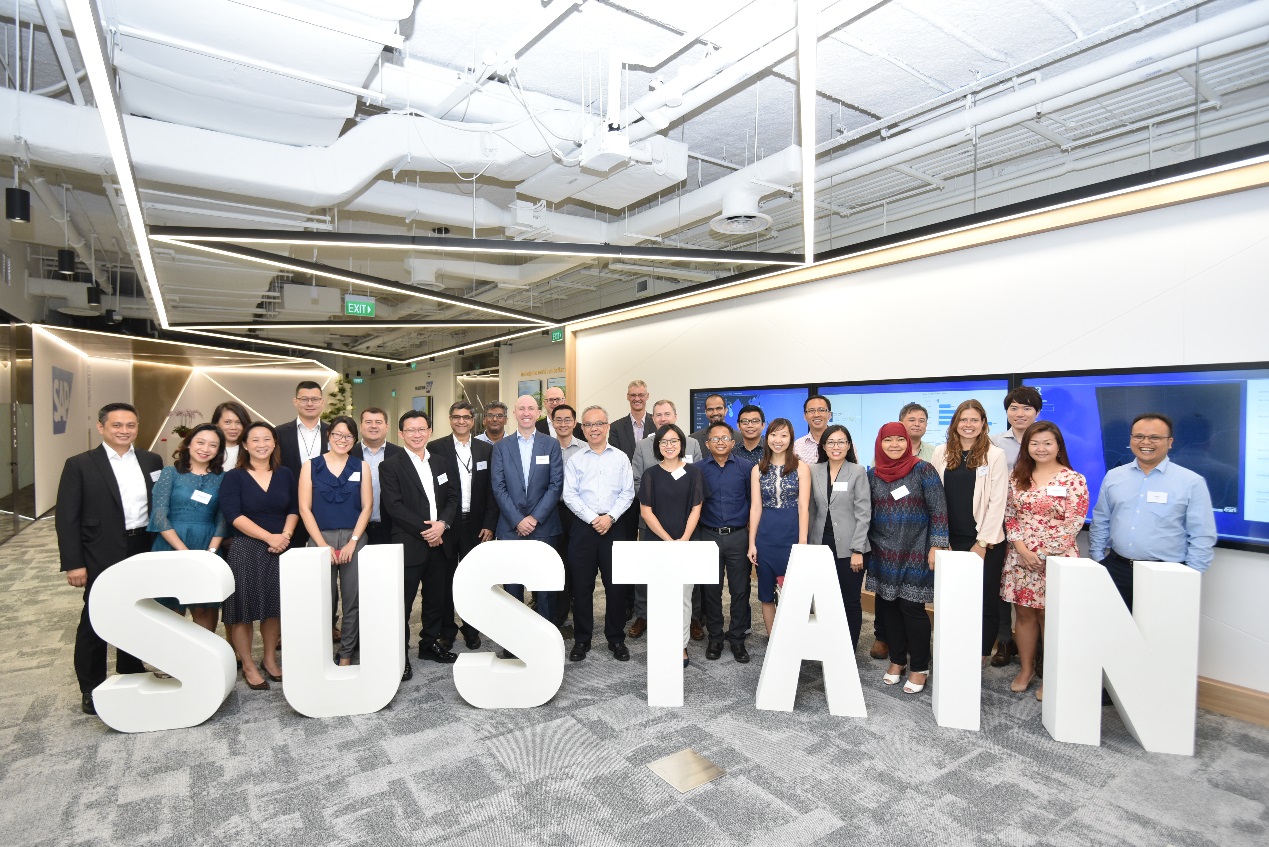
Sustainable palm oil is the best solution to meet growing demand for vegetable oil, and progress is being made. “We need to work together,” said Bernard.
Big producers, smallholder farmers, government and consumers, we all need to play a role to enhance sustainability.”


